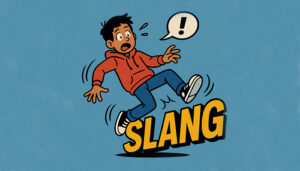The Croatian Language
is one of the official languages of Croatia and is spoken by about 6 million people worldwide.
Croatian sits in the South Slavic language group, primarily spoken in Croatia, Bosnia and Herzegovina, the Serbian province of Vojvodina, and other neighbouring countries. Croatian is very similar to other South Slavic languages, such as Serbian and Bosnian.
Historical Origins:
- The roots of the Croatian language can be traced back to the Old Church Slavonic, which was the first Slavic literary language developed in the 9th century.
- The modern standard Croatian is based on the Shtokavian dialect and developed gradually. By the 19th century, it took its present form during the Illyrian movement. The movement aimed to create a unified South Slavic literary language while emphasising the importance of individual Slavic cultures.
Number of Speakers and Geographic Spread:
- Croatian is spoken by approximately 5.5 million people, predominantly in Croatia, where it’s the official language.
- Apart from Croatia, it is one of the three official languages of Bosnia and Herzegovina. Moreover, it’s recognised as a minority language in Serbia, Austria, Hungary, Italy, Montenegro, Romania, Slovakia, Czech Republic and the United States.
Examples of Text and Audio:
“Dobro došli! Danas je lijep dan.” – Welcome! Today is a beautiful day.
Usage and Influence:
- Croatian is used everywhere – from everyday conversations, education, and media, to government proceedings. It has a rich literature history, including the works of authors like Miroslav Krleža and Antun Gustav Matoš.
- Despite Croatian’s influence being mainly regional, some words have made their way into English, particularly through the gastronomical scene. “Slivovitz”, a type of plum brandy, has entered the English lexicon from its Croatian equivalent “šljivovica”. Another example is “cravat”, which originated from the Croatian word “kravata”, representing the necktie – a contribution to fashion from Croatian mercenaries in the 17th-century French wars.
Interaction with English:
In the era of globalisation, Croatian has also borrowed words from English, particularly related to technology, pop culture, and new societal phenomena. For example, “internet”, “laptop”, “selfie”, and “shopping” are used in Croatian as they are in English, just adapted to Croatian phonetics and orthography.
Croatian is a language with a rich history and culture that continues to evolve. Its unique blend of influences and a deep-rooted connection to its historical roots make it a fascinating subject for linguists and language enthusiasts alike. From borrowing modern words from English to sharing its own traditional terms, Croatian’s interaction with other languages reflects its enduring vitality and adaptability.
Here at Brightlines, we have Croatian translation expertise that brands such as FIFA, De Beers and Google have relied upon in order to communicate their business to Croatian speakers. Our Croatian translation services include consultancy, copywriting and quality assurance.
Our translation services - FAQ
Do you use native translators?
Yes, always. All our translators are native speakers and most are still resident in their native country. We pride ourselves on ensuring that all Brightlines’ translators are native. We do not accept applications from non-native candidates or allow them to register on our online recruitment database. All our translators are rigorously tested.
How long will the translations take?
The turnaround for the translation will depend on the word count. As a rough guide, assume that the translators can comfortably process about 2500 words of non-specialised text per day. Proofreading can effectively be completed on a basis of 4000-6000 words a day. Our minimum turnaround time is usually about three days, although it is possible to shorten this if you are in a rush for the final files and we will always be happy to discuss this with you.
What is the variation in your translators’ experience and qualifications? Are they native speakers? Will the cost increase if we use a more experienced translator?
All our translators have to go through a series of tests to make sure they are as good as they say they are, and only if they pass are they allowed to work for Brightlines. There is quite a range of experience and qualifications, but all translators have a minimum of five years’ experience. All translators translate into their mother-tongue without exception and are generally based in-country so they are up-to-date with the local language. We match translators with projects/clients depending on the subject matter, and most of our translators have industry experience in their speciality – there is no better experience than being immersed professionally in the industry they specialise in. Our costs are based on translator experience, speciality (i.e. medical, creative, scientific) and the language choice.
Which languages can you translate into?
We have an extensive database with hundreds of trusted and tested translators covering all commercial languages. If you cannot see the language or dialect you need please ask.
I don’t know the word count; can you base the quote on the number of pages?
Our pricing structure is based on a rate-per-word, but we can estimate from a page count. If we can’t see the source document then we would usually estimate between 300 – 500 words a page depending on the density of the text and the presence of photos and images.
Does the translation need to be proofread?
Brightlines is an ISO 9001:2015 certified company. This means that quality is safeguarded. We adhere to the “four-eyes principle” and translations are always checked by a second professional proofreader (who is not the translator). If the translation is for internal use and reference purposes only (i.e. not to be published, distributed or used in a court of law), or you simply don’t wish to have proofreading, we can remove the proofreading stage.
Get in touch
If you need Croatian translations, get in touch with our team, or get a quick quote.






